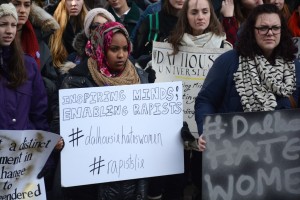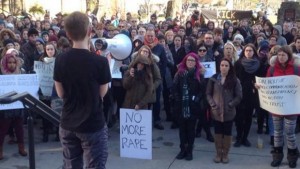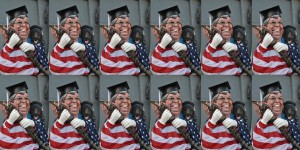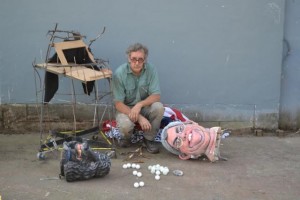September 1, 2015
Dear Ms. Laberge [Acting Chair, UBC Board of Governors]:
The events surrounding the 7 August 2015 resignation of Professor Arvind Gupta as President of the University of British Columbia continue to be of paramount concern to the Faculty Association as well as the University and to the public at large. We therefore wish to respond to the Board’s letter to Mark MacLean dated 14 August 2015. The Board’s letter simply reasserts that the mutually entered into confidentiality agreement between the University and Professor Gupta be respected and that further details regarding his resignation not be released.
However, any terms attached to Professor Gupta’s resignation may be reconsidered by the two parties who entered into such an agreement. Thus, it is fully within the powers of the Board of Governors to initiate a negotiation with Professor Gupta to agree to rescind the non-disclosure agreement to allow for greater transparency as to how we came to the point of a failed presidency.
We therefore call upon the Board of Governors to approach Professor Gupta to renegotiate the terms of his resignation agreement so that both the University and Professor Gupta are able to speak fully to the reasons for his resignation. Given the events that have transpired since Professor Gupta’s resignation, and the incessant stream of rumour and innuendo that continues to swirl around the University, we do not believe that the maintenance of a mutually agreed to non-disclosure agreement around Professor Gupta’s resignation is in the best interests of the University, of Professor Gupta, or of the public.
If this agreement was put in place to protect Professor Gupta, then speculation and the public dissection of his presidency in the media have removed any intended sense of privacy. Indeed, for example, it is apparent from the 26 August Globe and Mail article by Simona Chiose and Frances Bula that a number of individuals working in the administration have been speaking anonymously to the media in a manner that is disparaging to Professor Gupta, which surely is not the intent of a non-disclosure agreement. As a result, the public is left with incomplete and unverifiable information and innuendo in the place of the truth.
Beyond the lack of a proper assessment of Professor Gupta’s performance during his year as president, we are also missing an accounting of the Board of Governors’ actions during the period in question. Much has been made of the resignations of Vice-Presidents, for example, and dissatisfaction in senior administration with these resignations has been posited as one reason for Professor Gupta’s resignation. But these resignations were accepted by the Board of Governors, so how did the Board work with Professor Gupta to conclude that these leadership changes were in the best interests of the University? We also note that there were resignations from other senior administrators early in the terms of Presidents Piper and Toope, and these never merited comment. It has always been the case that a President can put his or her own team in place, so what was different for President Gupta?
We are also greatly concerned that continued secrecy about the circumstances of Professor Gupta’s departure will make it difficult – if not impossible – for the University to conduct a search for a new president, and to ensure that the unfortunate events of this summer will not recur.
Certainly the damage caused to the University’s reputation will increase the difficulty of finding suitable candidates. Furthermore, the stream of innuendo and rumour and media attention that envelop the actions of the Board in managing the relationship with Professor Gupta will likely make qualified candidates for the presidency (or for any of the currently vacant positions in senior administration) reluctant to accept an appointment at UBC.
We therefore invite the Board to share with us, and with the University as a whole, how they envision conducting a search for a new President without disclosing the circumstances that led to the resignation of Professor Gupta.
We are currently without a permanent President, without a permanent Provost and VP Academic, and without a Vice-President for Communications. Our VP Finance has been in the position for less than 4 months, and the VP Research & International is coming to the end of his term. Meanwhile we have a major public relations crisis unfolding, complete with rumors of back-stabbing, malfeasance, conflicts of interest, and manipulation, as well as an ongoing independent inquiry into actions of senior University officials.
It is not reasonable to move forward in a positive way until all rumours of administrative failure are dispelled, and all the facts placed on the table. The reality of the present situation is that governance structures at UBC have broken down, and it is not credible to maintain that Professor Gupta’s resignation is simply a personnel matter that can remain shrouded in secrecy. The University’s reputation is seriously compromised, and further secrecy and obfuscation will compound the damage.
In conclusion, we refer you to the words of our interim President, Dr. Martha Piper, in her introductory message to the University community: “Consider the people and influences that enabled UBC to earn recognition as one of the top 40 research universities in the world. We have built this success on a century of effort, on the brilliance of people like the Nobel Prize winning Dr. Michael Smith, like geographer Derek Gregory, and like zoologist and biodiversity researcher Sally Otto….. The people who judge universities … count alumni and faculty winning Nobel Prizes. They look for the number of articles published, especially in prestigious journals like Nature and Science. They ask how our graduates perform and they notice that UBC produces seven of every 10 B.C. Rhodes Scholars.”
The point we take from Dr. Piper’s words is that the University is only as good as its faculty, staff, and students, and that UBC is bigger than the Board, and bigger than Professor Gupta. We urge the Board of Governors in the strongest possible terms to work with Professor Gupta to negotiate terms permitting all parties to speak freely about the events that have affected us all collectively.
Sincerely,
UBCFA

 Follow
Follow




How not to run a university (Prologue + Trilogy)
Here are links to E. Wayne Ross’ commentaries on the ongoing leadership crisis at the University of British Columbia. All the commentaries have appeared on his blog and several have also appeared in the Vancouver Observer:
Comments Off on How not to run a university (Prologue + Trilogy)
Posted in Academic freedom, Academics, Accountability, Administration, Bullying & Mobbing, Commentary, Corporate University, Free speech, Governance
Tagged Academic freedom, Accountability, Arvind Gupta, bullying, Ethics, Free speech, Governance, harassment, higher education administration, Jane Berdahl, John Montalbano, leadership, Sauder School of Business, transparency, UBC, UBC Board of Governors, UBC Faculty Association, UBCFA, University of British Columbia, University presidents